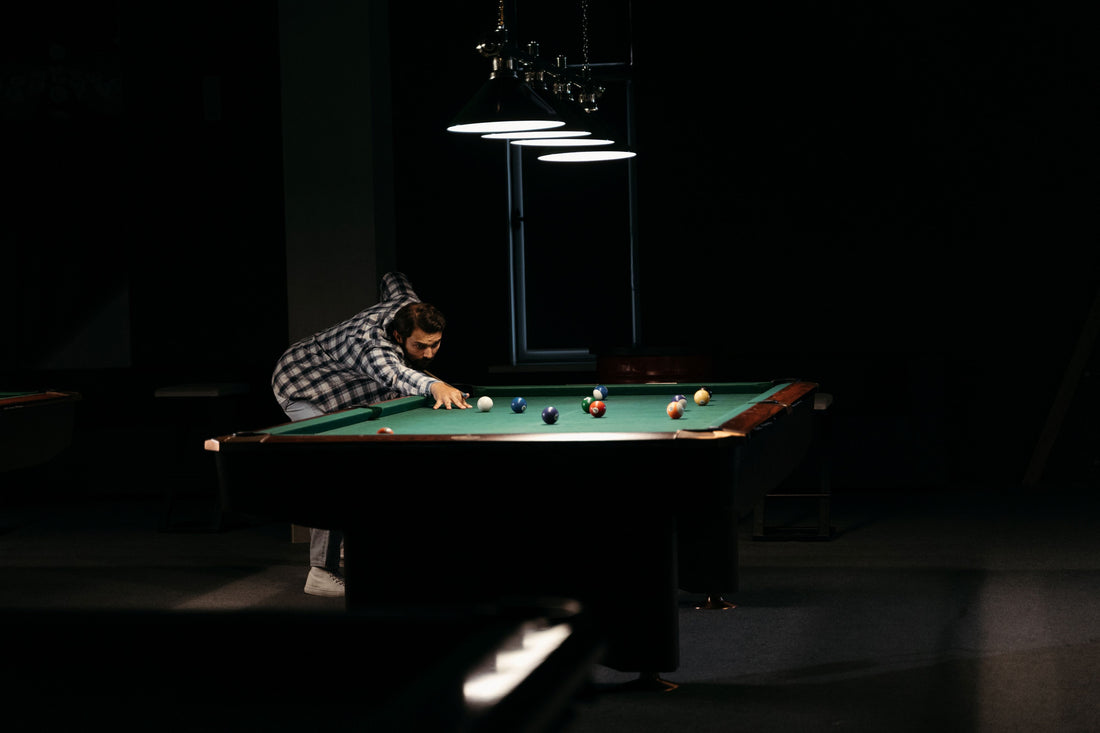
Mastering the Art of Billiards: Tips to Excel in the Game
Share
Introduction
Billiards, often referred to as "pool" in the United States, is a captivating cue sport that requires precision, strategy, and finesse. Whether you're a beginner or an intermediate player looking to elevate your skills, mastering billiards is a rewarding journey. In this article, we'll delve into some essential tips and techniques that can help you excel in playing billiards.
-
Perfect Your Stance and Grip
A solid foundation begins with your stance and grip. Stand with your dominant foot forward, ensuring a comfortable balance. Your grip on the cue should be relaxed yet firm, with your bridge hand forming a stable base on the table. Experiment with different stances and grips to find the one that suits you best, but remember that consistency is key.
-
Focus on Cue Ball Control
Cue ball control is the heart of billiards mastery. To excel in this aspect, practice your shots meticulously. Work on hitting the cue ball in different places to achieve different spins (topspin, backspin, sidespin) and precise placement on the table. Developing a keen understanding of how the cue ball reacts to your strikes is crucial for setting up your next shots.
-
Learn the Fundamentals of Aiming
Aiming in billiards is a blend of art and science. The basic principle is to imagine a line from the target ball to the pocket and align your cue accordingly. Many players use the ghost ball method, visualizing an imaginary ball in place of the target ball. With practice, your aiming skills will improve, and you'll become more accurate in your shots.
-
Master the Art of English (Sidespin)
English, or sidespin, is a powerful tool in billiards. It allows you to manipulate the path of the cue ball after it strikes another ball. Experiment with English to control the angle and direction of the cue ball. Practice is essential, as it can be challenging to predict the exact outcome of English on different shots.
-
Develop Your Strategy
Billiards isn't just about making balls; it's also a game of strategy. Think several moves ahead and plan your shots accordingly. Consider safety shots, where you leave the opponent with a difficult shot or no shot at all. Learn to read the table and identify clusters of balls that can be strategically broken up to your advantage.
-
Focus on Positional Play
Positional play involves setting up your next shot by leaving the cue ball in a favorable position. Work on controlling the cue ball's speed and trajectory to ensure it lands where you want it to. The ability to consistently position the cue ball for your next shot separates the pros from the amateurs.
-
Mental Toughness and Patience
Billiards can be mentally demanding, especially during high-pressure games. Maintain focus, stay calm under pressure, and avoid rash decisions. Patience is key, as it allows you to wait for your opponent to make mistakes and seize opportunities.
-
Practice, Practice, Practice
There's no substitute for practice. Dedicate time to hone your skills regularly. Solo drills, such as practicing shots and cue ball control, can be immensely helpful. Playing with better opponents or joining a billiards league can also accelerate your learning curve.
Conclusion
Becoming a proficient billiards player requires dedication, patience, and a commitment to learning and improving. By perfecting your stance, grip, cue ball control, aiming, and strategy, you'll be well on your way to excelling in the game of billiards. Remember that consistent practice and a cool head under pressure are your allies on this rewarding journey to mastery. So, grab your cue, chalk it up, and keep aiming for those pockets!

